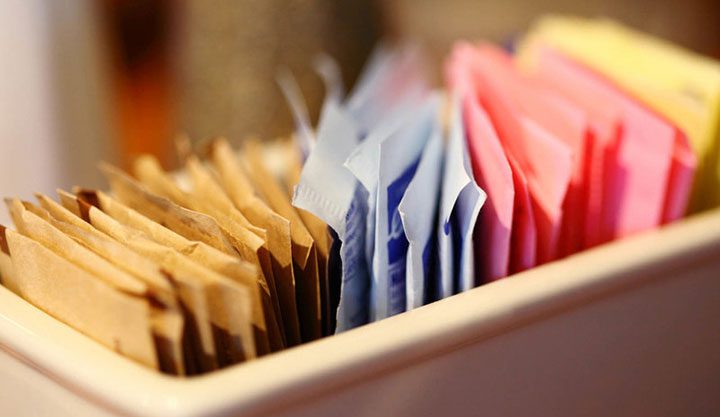According to a study published in the journal Molecules, researchers discovered that six common artificial sweeteners approved by the Food and Drug Administration and ten sports supplements were found to be harmful to the gut bacteria of mice.
Researchers from Ben-Gurion University of the Negev in Israel and Nanyang Technological University in Singapore tested the toxicity of aspartame, sucralose, saccharin, neotame, advantame, and acesulfame potassium. They observed that exposure to just 1 milligram per milliliter of artificial sweetener made the bacteria found in the digestive system toxic.

Exposing gut bacteria to just 1 milligram per milliliter of artificial sweetener makes them toxic.
Ariel Kushmaro, a professor of biotechnology engineering at BGU, stated: “This is evidence that the consumption of artificial sweeteners negatively affects the activity of gut bacteria, which can lead to various health issues.”
The study indicated that the gut bacterial system plays a crucial role in human metabolism, and artificial sweeteners may impact the health of the host, such as causing glucose intolerance. Additionally, some effects of newly FDA-approved sweeteners, like neotame, are still not well understood.

Some sweeteners have been identified as environmental pollutants.
However, the research showed that mice fed with the artificial sweetener neotame exhibited distinct metabolic patterns compared to those not given this substance. Furthermore, several important genes found in the human gut were also reduced. Additionally, the concentrations of certain fatty acids, fats, and cholesterol were higher in mice fed neotame than in normal mice.
Due to the widespread use of artificial sweeteners in beverages and foods, many people consume them unknowingly. Besides being found harmful to health, some sweeteners have been identified as environmental pollutants. Researchers noted that they can also be found in drinking water.
In addition to being toxic to gut bacteria, artificial sweeteners also stimulate bacteria that negatively affect the intestines.
Synthetic sweeteners include: saccharin, sucralose, and aspartame – which have been shown for the first time to have the ability to convert gut bacteria E. coli and E. faecalis into pathogenic agents.
These bacteria can then adhere to Caco-2 cells in the intestinal wall, invade, and kill these cells. All three of these sweeteners also enhance the formation of biofilms (a dense colony layer of microorganisms), making them resistant to antibiotic treatments.
Gut bacteria becoming aggressive and attacking the intestinal wall is bad news. Previous studies have shown that E. faecalis bacteria crossing the intestinal wall can cause a range of infection symptoms, including bloodstream infections (septicemia).
“These changes may allow gut bacteria to invade and attack other internal organs, causing infections and damaging body organs.”



















































